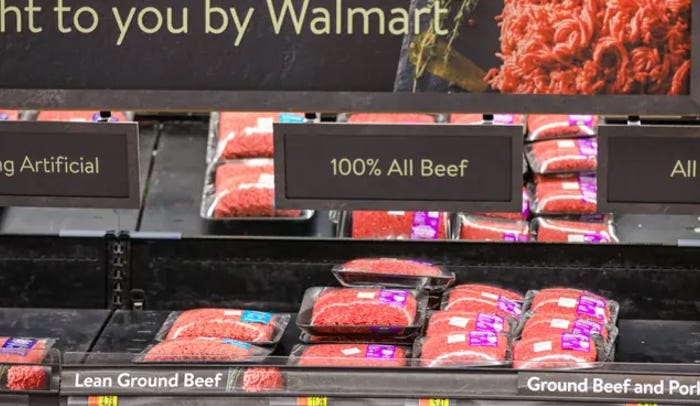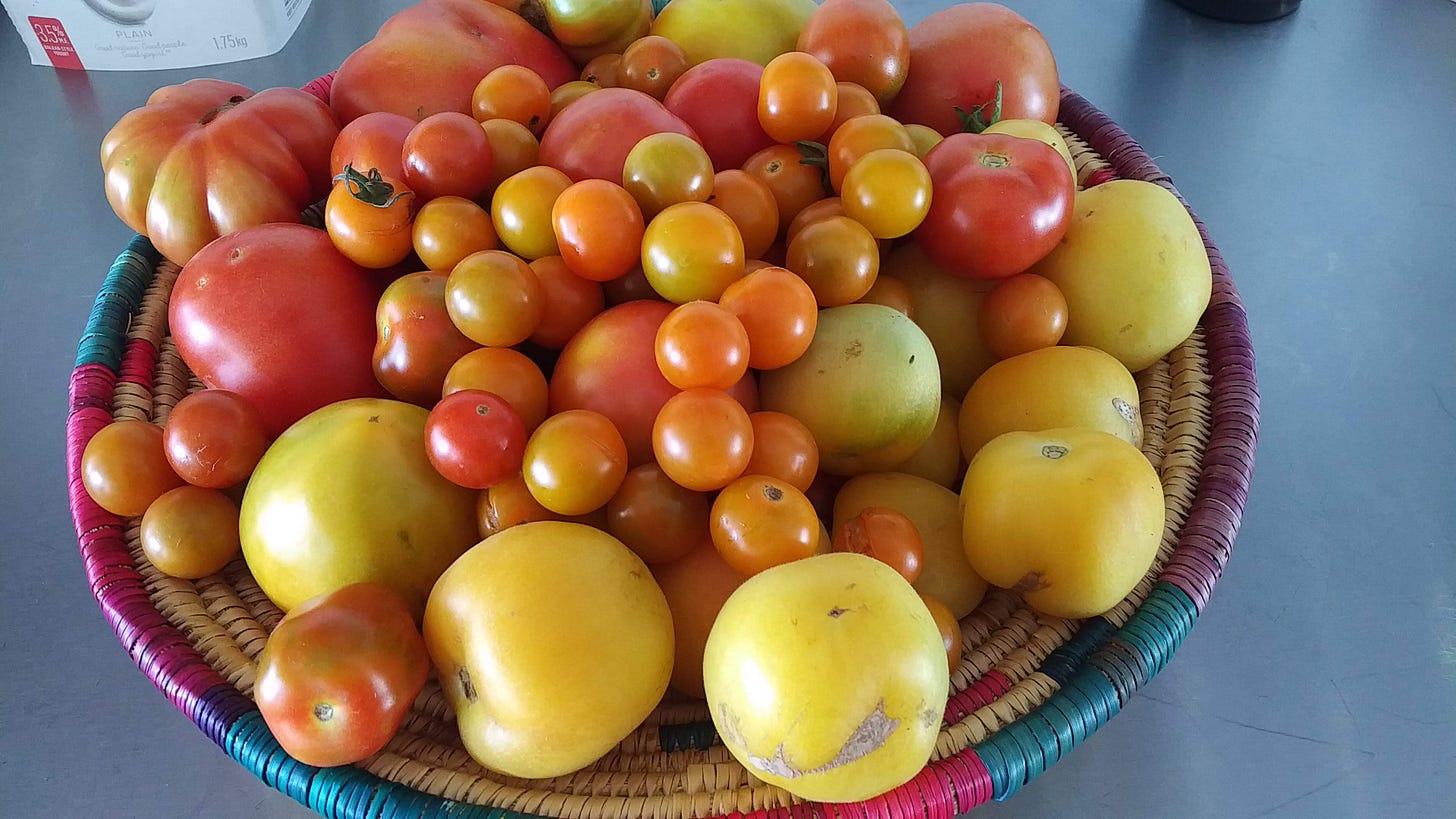Notes from the edge of civilization: May 5, 2024
Handwritten protest signs go extinct; Cargill recalls tons of ground beef; McDonald's customers are feeling the squeeze; And, cereal for dinner becomes a marketing ploy.
Campus protests over the war in the Middle East continued to dominate the news this week, with police called in to remove encampments, make arrests, and defuse tensions at universities across the country.
One small but curious detail caught the attention of the team here at Collapse Life: the protest signs carried by the students. Nearly all of them are professionally printed. It makes you wonder, who is funding these supposedly grassroots efforts?
Perhaps homemade signs are just too difficult for students these days, considering handwriting was dropped from the curriculum when today’s college students were still in elementary school?
In last week’s roundup, we told you about a new law in Oklahoma requiring public and charter schools to teach handwriting to third, fourth, and fifth graders. An adjunct to that story is this exclusive from The Daily Mail, looking at the cognitive and social impacts of removing writing from the core curriculum.
Handwriting is considered a fine motor skill that stimulates and challenges the brain, but with schools turning to technology instead, some teachers are complaining students can barely hold a pencil but can swipe and double-click on their devices.
Students with learning disabilities like dysgraphia - when children can read but have trouble writing letters - can also be affected because methods of overcoming the disability requires them to practice writing by hand.
Previous studies have revealed that IQ scores have dropped for the first time in a century and indicated that technology could be to blame.
Teachers, parents and experts who DailyMail.com spoke to said they were seeing kids and young adults who don't know how to sign their name or read cursive.
Stimulating and challenging the brain? Dropping IQ scores? Kind of explains the trajectory the world appears to be on, doesn’t it?
While students at elite universities focus their attention on the plight of people in the Middle East, many Americans continue to struggle to make ends meet at home. In recent earnings calls, the CEOs of some of the largest corporations reported their customers are “feeling the squeeze,” as CNBC reports:
Some of America’s best-known corporations are saying their consumers are being pinched by inflation as prices continue rising.
Inflation has dominated corporate America’s discourse over the past three years following the pandemic-induced easing of monetary policy and trillions of dollars in Covid relief. Though the pace of price growth has cooled since the Federal Reserve began raising interest rates in early 2022, consumers are still feeling the squeeze — and often tightening purse strings — as costs continue climbing.
“It is clear that broad-based consumer pressures persist around the world,” McDonald’s CEO Chris Kempczinski said on the fast-food chain’s earnings call early Tuesday. “Consumers continue to be even more discriminating with every dollar that they spend as they faced elevated prices in their day-to-day spending.”
Sticky inflation has created a dark cloud over how everyday Americans perceive the health of the economy. Consumer confidence in April hit its lowest level since mid-2022 as high prices remained top of mind, according to data released Tuesday by the Conference Board.
Cost-conscious consumers looking for good value are turning to some potentially troubling tactics, including eating hollow calories like breakfast cereal as their main meal. And while this could be a further sign of desperate economic times, as we reported earlier this week, brands like Kellogg’s and General Mills are using it as a marketing opportunity. Question is: Are you “Livin’ Cereal Rich?”
READ MORE:
You could slowly kill yourself with the continued intake of all manner of sugar and refined carbs in a box. But another sign of just how broken the industrialized food system is comes in this related story: Cargill recalled eight tons of ground beef that was processed at a Pennsylvania plant and distributed to Walmart stores nationwide. The recall was due to potential E. coli contamination.
This comes about one month after walnuts sold at Whole Foods were recalled for potential E. coli contamination.
Last month, Trader Joe's recalled fresh basil sold in 29 states and Washington, DC, due to dozens of cases of salmonella.
The recent spate of food recalls, including the current ground beef recall, highlights the need for Americans to understand better the sourcing of their food.
To quote total stranger ‘Bobby’ off Twitter:
And, if we might be so brash, we suggest you do whatever you can — as quickly as you can — to support your local rancher through organizations like Texas Slim’s The Beef Initiative or Good Ranchers.
The best way to understand and control where your food comes from is to grow it yourself, as many Collapse Life podcast guests have indicated in previous interviews. But even that simple act now comes with a warning, as a new investigation in the Epoch Times reports:
As spring gardening approaches, a new contender has entered the fray—the genetically modified (GM) Purple Tomato. Unlike its GM predecessors, the GM Purple Tomato is not destined solely for the fields of commercial agriculture—it has made its debut in the backyards of home gardeners across the United States.
With claims of heightened antioxidant levels and potential health benefits, this novel creation has stirred both excitement and controversy among consumers and scientists alike. Biotech investors hope it can usher in a new era of public trust in genetically engineered foods while skeptics worry the tomatoes’ near-total lack of regulation or review may hide dangers to human health and/or the environment.
As curmudgeons and codgers, we here at Collapse Life recommend staying away from genetically modified anything, let alone tomatoes. As inspiration, we include herewith, a picture of a basket of some of our favorite heritage tomatoes from our homestead a few years ago. Stunningly beautiful and delicious, too. No need for GMOs.








Definitely include heirloom seeds in your discussion
Yes to a workshop on seeds